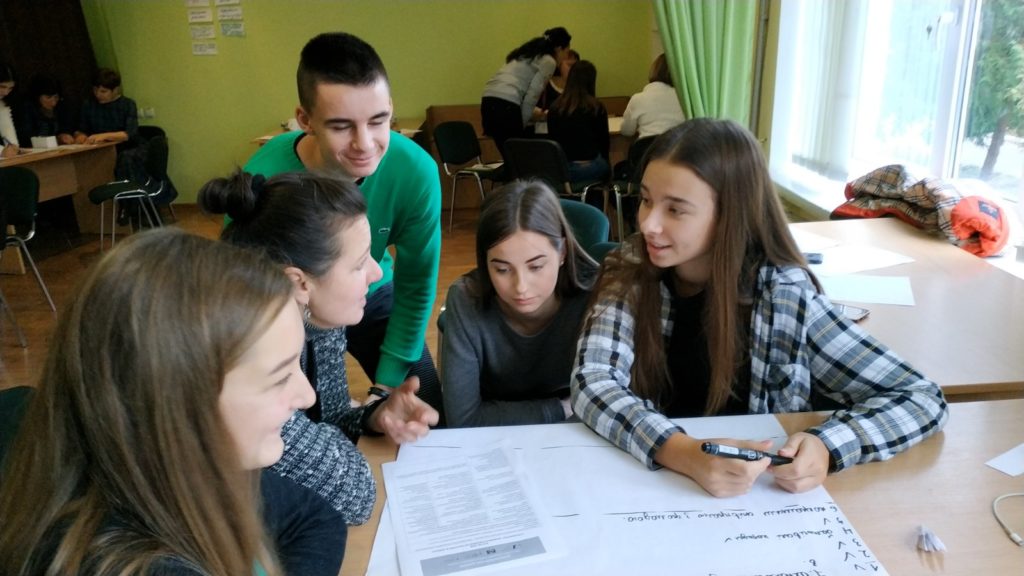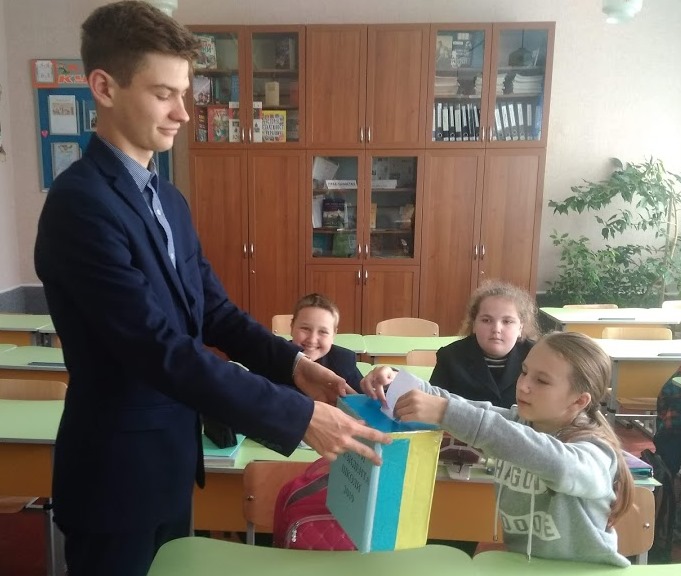Radivilivsky lyceum and Konotop Secondary School №10 are both participating in the EWC Schools for Democracy and are good examples of changes which should be made to assure participation of students, parents, teachers along with the school administration and community representatives in school governance and culture.

In Radivilivsky lyceum (Rivne region) there were self-governing bodies before the school took part in the Programme, but their activities were not prominent. Teachers and the administration personally appointed children and approved their decisions. The first important step was the development of the Regulations on Student Self-Government, approved in a school referendum. Further, the school president election was held. All school president candidates developed their own election program and campaigning strategy. During the week, each candidate implemented one of their projects announced in the program in order to demonstrate their skills. Later, having gained some experience, the president of the lyceum also became the president of the local youth community parliament.
Student government actively interacts with all school stakeholders – parents, teaching staff and school administration. Students were involved in the decision-making and initiatives related to various aspects of school life. Among them were an assembly hall renovation, introduction of a variety of menus in the canteen, the installation of water coolers in each classroom and energy-saving lighting. “It’s nice that parents are now involved in creating a democratic environment at school. Everyone has benefited from such changes – students, parents and teachers. Students have become active participants in the democratic educational process, they have understood their role both during extracurricular activities and in lessons,” emphasizes Iryna Kulik, one of the parents.

In Konotop Secondary School №10 (Sumy region), the election of the school president, school government and the renewal of the student parliament took place. Candidates prepared their own school development plan and presented it in a speech to students. The elected president, government and parliament members established regular meetings “over a cup of tea” with the school principal to discuss their proposals. Among these proposals was the idea to hold school charity fairs to attract attention to the problems of the school and the community.
An important event was the New Year’s auction, during which funds were raised for the treatment and rehabilitation of one of the school students. Parents, teachers and the city community were involved in this event.
“It is very nice that our children seek to help those who need it,” – said Natalia Tkachenko, the chairman of the parents’ council.